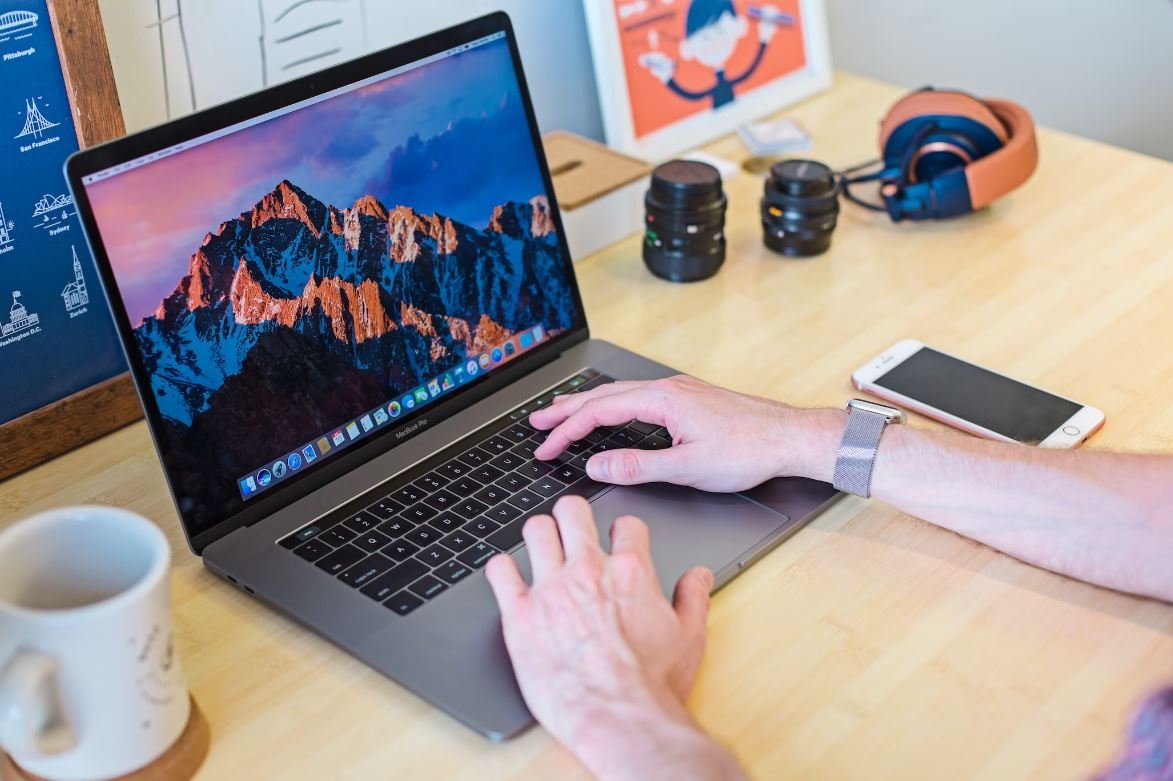Podcast Microphone Reviews
Podcasting has become a popular medium for sharing information, stories, and entertainment. To create high-quality podcasts, it is crucial to invest in a good podcast microphone. With a vast array of options available, it can be overwhelming to find the right one for your needs. This article provides a comprehensive review of various podcast microphones to help you make an informed decision.
Key Takeaways:
- Choosing the right podcast microphone is essential for producing professional-quality podcasts.
- Consider your budget, recording environment, and microphone type when selecting a podcast microphone.
- Dynamic microphones are robust and perform well in noisy environments, while condenser microphones offer greater sensitivity and detail.
- USB microphones are convenient for beginners, while XLR microphones provide more versatility and better sound quality.
1. Dynamic Microphones: These microphones are known for their durability and performance in noisy environments. They are suitable for podcasters who record in less-than-ideal conditions. Dynamic microphones are also more affordable compared to condenser microphones.
2. Condenser Microphones: These microphones offer greater sensitivity and detail, making them perfect for capturing vocal nuances. If you have a well-treated recording space, a condenser microphone can provide excellent sound quality.
* Interesting Fact: The Blue Yeti microphone is a popular choice among podcasters due to its versatility and USB connectivity.
3. USB Microphones: These microphones are plug-and-play, making them ideal for beginners and podcasters on the go. They connect directly to your computer, eliminating the need for additional audio interfaces. USB microphones are easy to set up and offer decent sound quality.
4. XLR Microphones: XLR microphones require an audio interface or a mixer for proper connectivity. They offer better sound quality and flexibility for advanced podcasters. XLR microphones are favored by professional podcasters and studios due to their versatility and ability to connect to a wide range of equipment.
Comparison Tables
| Microphone Model | Type | Connectivity | Price Range |
|---|---|---|---|
| Shure SM58 | Dynamic | XLR | $99 – $149 |
| Rode NT1 | Condenser | XLR | $269 – $299 |
| Microphone Model | Type | Connectivity | Price Range |
|---|---|---|---|
| Audio-Technica ATR2100x | Dynamic | USB/XLR | $99 – $129 |
| Blue Yeti | Condenser | USB | $129 – $149 |
| Microphone Model | Type | Connectivity | Price Range |
|---|---|---|---|
| Rode PodMic | Dynamic | XLR | $99 – $119 |
| Samson Q2U | Dynamic | USB/XLR | $59 – $69 |
Microphone preferences can vary depending on personal preferences and budget. Consider the following factors when making your decision:
- Budget: Determine your budget range to narrow down your options and find the best microphone within your price range.
- Recording Environment: Consider the acoustic conditions of your recording space. If it is untreated or noisy, a dynamic microphone may be a better choice.
- Microphone Type: Decide if you prefer a dynamic or condenser microphone based on your recording style and the level of detail you want to capture.
- Connectivity: Choose between a USB microphone for simplicity or an XLR microphone for versatility and higher audio quality.
* Interesting Fact: The Audio-Technica ATR2100x microphone offers the flexibility of both USB and XLR connectivity at an affordable price.
In conclusion, finding the right podcast microphone is crucial for producing professional-sounding podcasts. Consider your budget, recording environment, and preferred microphone type to make an informed decision. The reviewed microphones presented here range in price and features, giving you plenty of options to choose from. Invest in a quality podcast microphone and take your podcasting game to the next level!

Common Misconceptions
Misconception 1: Expensive microphones guarantee better sound quality
One common misconception people have when it comes to podcast microphones is that the more expensive the microphone, the better the sound quality. However, it is important to note that sound quality is not solely determined by the price of the microphone.
- Sound quality is influenced by various factors such as room acoustics, microphone technique, and post-production editing.
- There are many affordable microphones that can produce excellent sound quality for podcasting purposes.
- Expensive microphones may have additional features or build quality, but they do not necessarily guarantee superior sound quality.
Misconception 2: USB microphones are of lower quality than XLR microphones
Another misconception is that USB microphones are of lower quality compared to XLR microphones. While XLR microphones are traditionally used in professional audio settings, USB microphones have come a long way and can now offer similar performance.
- USB microphones are convenient and plug-and-play, making them suitable for beginners or podcasters on the go.
- Advancements in technology have led to the development of high-quality USB microphones that rival XLR microphones in terms of sound reproduction.
- For many podcasters, the difference in audio quality between USB and XLR microphones may be negligible, especially when considering other factors that affect sound quality.
Misconception 3: A specific microphone is suitable for all podcasters
One misconception people have is that a specific podcast microphone is suitable for all podcasters. The reality is that the ideal microphone for podcasting varies depending on the individual’s voice, recording environment, and other preferences.
- Each person’s voice has unique characteristics, such as tone, pitch, and projection, which may require different microphone choices.
- Recording environments differ in terms of acoustics, background noise, and room size, which can affect microphone selection.
- Personal preferences regarding microphone type (dynamic, condenser, ribbon) and features (built-in pop filter, adjustable polar patterns) also play a role in choosing the right microphone.
Misconception 4: Higher microphone sensitivity is always better
Many people believe that higher microphone sensitivity is always better, assuming that it will capture more details and produce better sound quality. However, this is not always the case.
- Higher microphone sensitivity can lead to picking up unwanted background noise and room reverb, which can degrade the overall sound quality.
- For podcasters recording in home or non-soundproofed environments, a microphone with lower sensitivity may be more suitable to minimize unwanted noise.
- It is important to strike a balance between sensitivity and noise rejection to achieve optimal sound quality for podcasting.
Misconception 5: Only brand-name microphones are worth considering
There is a common misconception that only brand-name microphones are worth considering for podcasting. While reputable brands often offer quality products, there are many lesser-known brands that provide great options at affordable prices.
- By exploring lesser-known brands, podcasters can discover hidden gems that offer excellent sound quality and features at a fraction of the price of popular brand-name microphones.
- Researching user reviews and expert recommendations can help uncover reliable and budget-friendly microphone options.
- The most important factor when selecting a microphone is its suitability for your specific podcasting needs, regardless of the brand name.

Top 10 Podcast Microphones
When it comes to podcasting, having a high-quality microphone is essential for capturing clear and professional audio. We have gathered data and reviews to compile a list of the top 10 podcast microphones available on the market. Each table highlights the microphone’s key features, price range, and overall rating. Read on to find the perfect microphone for your podcasting needs.
1. Shure SM7B
The Shure SM7B is a renowned dynamic microphone known for its exceptional noise cancellation and warm sound. It is highly regarded by podcasters and broadcasters alike.
2. Audio-Technica ATR2100x-USB
The Audio-Technica ATR2100x-USB delivers excellent audio quality, with the flexibility of both USB and XLR connections. It is a versatile option suitable for beginners and experienced podcasters.
3. Rode PodMic
The Rode PodMic is a budget-friendly dynamic microphone that provides great sound quality. It is designed specifically for podcasting and is a reliable option for creators on a tighter budget.
4. Electro-Voice RE20
The Electro-Voice RE20 is a classic broadcast microphone often seen in professional studios. It offers a smooth and natural sound, making it ideal for long recording sessions.
5. Blue Yeti X
The Blue Yeti X is a popular USB microphone that offers a range of features, including multiple pickup patterns and real-time LED metering. It is a user-friendly option suitable for various recording environments.
6. Neumann U87
The Neumann U87 is a high-end condenser microphone known for its pristine audio reproduction. It is favored by professionals for its accuracy and versatility.
7. Shure SM58
The Shure SM58 is a durable dynamic microphone widely used in live performances and podcasting. It provides excellent vocal clarity and is resistant to handling noise.
8. AKG C214
The AKG C214 is a cost-effective condenser microphone that delivers a crisp and detailed sound. It is a solid choice for podcasters seeking professional-quality audio.
9. Sennheiser MD 421 II
The Sennheiser MD 421 II is a dynamic microphone renowned for its versatile sound reproduction and robust build. It is often used for capturing instruments as well as vocals.
10. Shure MV7
The Shure MV7 is a versatile microphone that offers both USB and XLR connections. It has built-in voice isolation technology and provides broadcast-quality sound at an affordable price.
Conclusively, choosing the right podcast microphone plays a crucial role in producing engaging and professional-sounding content. The tables above provide an overview of some of the top microphones available, considering factors such as sound quality, versatility, and price. Evaluate your specific needs and budget to find the best microphone that will elevate your podcasting experience.
Frequently Asked Questions
What are some popular podcasting microphones?
Some popular podcasting microphones include the Blue Yeti, Audio-Technica ATR2100x-USB, Shure SM7B, Rode NT-USB, and Samson Q2U.
What factors should I consider when choosing a podcast microphone?
When choosing a podcast microphone, you should consider factors such as budget, microphone type (USB or XLR), sound quality, polar pattern, and ease of use.
What is the difference between USB and XLR microphones?
USB microphones are typically more beginner-friendly and offer plug-and-play functionality, while XLR microphones require an audio interface or mixer for proper connection to your recording setup.
Which polar pattern should I choose for podcasting?
For podcasting, a cardioid polar pattern is commonly used as it captures sound primarily from the front and reduces background noise from the sides and rear.
Do I need a shock mount for my podcast microphone?
A shock mount helps reduce vibrations and handling noise, which can significantly improve the sound quality of your recordings. It is recommended but not essential.
How important is sound quality for a podcast?
Sound quality is essential for a podcast as it directly impacts the listener’s experience. Clear and professional-sounding audio can help retain and attract more listeners.
Can I use headphones as a substitute for a microphone?
No, headphones cannot be used as a substitute for a microphone. While some headphones have built-in microphones for phone calls, they are not designed for high-quality recording purposes.
What other equipment do I need for podcasting besides a microphone?
In addition to a microphone, you may need other equipment such as headphones, a microphone stand or boom arm, a pop filter, an audio interface or mixer (for XLR microphones), and recording/editing software.
How do I improve the sound quality of my podcast?
You can improve the sound quality of your podcast by using a high-quality microphone, ensuring proper microphone technique, investing in soundproofing or acoustic treatment, editing your recordings, and utilizing post-processing techniques.
Are more expensive microphones always better for podcasting?
Not necessarily. While higher-priced microphones often offer superior sound quality and build, there are many affordable options that can meet the needs of most podcasters.


Leave a Reply